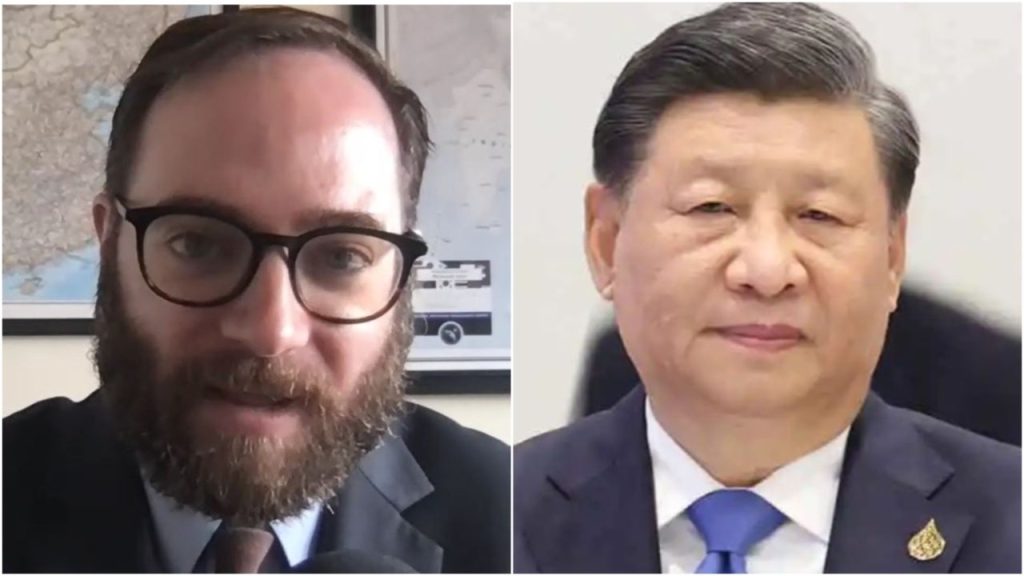Michael Sobolik, a Senior Fellow in Indo-Pacific Studies at the American Foreign Policy Council, believes that the United States is currently engaged in a Cold War with China. In order to achieve victory in this conflict, Sobolik argues that the U.S. must take the fight to China in two key areas. He outlines these strategies in his book “Countering China’s Great Game: A Strategy for American Dominance,” emphasizing the importance of exploiting the weaknesses of the Chinese Communist Party (CCP) within China itself.
One of the steps Sobolik suggests is cracking down on Chinese trade routes running through Xinjiang, where an alleged genocide against the Uyghur population is taking place. He argues that the CCP’s willingness to commit genocide in order to maintain control of this region indicates a weakness rather than strength. Sobolik proposes cutting off actors involved in genocide from the global financial system if their economic benefits come from U.S. dollars. This, in turn, could have a significant impact on half of the Belt and Road trade routes in Eurasia.
Another competitive step the U.S. can take against China is in the realm of information. Sobolik highlights the CCP’s handling of the COVID-19 pandemic as an example of prioritizing control over transparency and truth. He argues that free speech and transparency within China are not just human rights issues but also national security concerns, as countless Americans died due to the CCP’s cover-up of the virus. Sobolik calls for pushing back against China’s censorship of information and free speech through its “Great Firewall.”
In his book, Sobolik emphasizes the need for the U.S. to go on the offensive against China rather than playing defense. He believes that American policymakers should create problems for China, exploit its weaknesses, and seize the initiative in the Cold War. Sobolik argues that good defense is essential but insufficient in winning this conflict, stating that Cold wars are won by taking the offensive and opposing authoritarian regimes. He believes that the U.S. must identify and exploit China’s vulnerabilities, such as its fear of transparency, in order to achieve victory.
Sobolik suggests that by targeting China’s trade routes and financial networks that benefit from genocide, the U.S. can strategically weaken the CCP’s ability to exert control. He also calls for measures to counter China’s censorship of information and free speech, highlighting the role of transparency in national security. Sobolik argues that by forcing China to react to U.S. actions, the U.S. can put the CCP on the defensive and gain an advantage in the ongoing Cold War. Overall, he stresses the importance of proactive strategies and offensive actions in confronting China’s growing influence and power.


